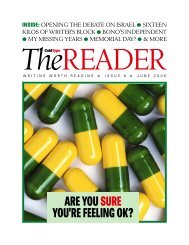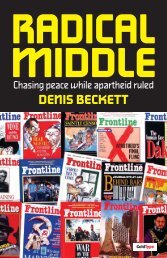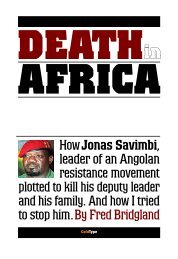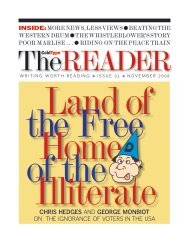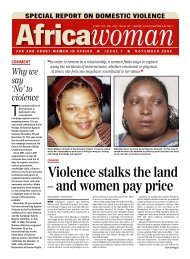Create successful ePaper yourself
Turn your PDF publications into a flip-book with our unique Google optimized e-Paper software.
114<br />
out at his former colleagues during a news agencies conference<br />
in Spain. Speaking to reporters and editors via video link, he<br />
charged media complicity: “General journalists, as well as business<br />
journalists, are really guilty in this. They have indulged<br />
madness in the last five years – we should have been better<br />
at whistleblowing than we were. Journalists for the most part<br />
missed the build-up to the crisis and did not warn the public.<br />
We all kind of believed that we had fallen upon some kind of<br />
alchemy, which capitalism had changed. And I think everyone<br />
got carried away. Even skeptics in the end found it was pretty<br />
difficult to maintain skepticism in the face of the tsunami of<br />
apparent easy money. We lost our senses, all of us journalists,<br />
politicians. We suspended our judgment and we are paying a<br />
big, big price.”<br />
The British press has viewed the crisis through the ideological<br />
lenses identified with various media outlets, but in some<br />
cases political lines have been crossed. The Daily Telegraph,<br />
nominally a pro-business free market newspaper – an enemy<br />
of statist liberals and mechanical Marxists – was the most outspoken<br />
in its predictions about a financial Armageddon. So<br />
much so that it was denounced as alarmist, even apocalyptic<br />
in its projections. Its columnists though were often accurate<br />
and ahead of the pack.<br />
What started as a kind of anglophile bashing of Wall Street<br />
and Americans for the lack of regulation turned into the scrutiny<br />
of British practices in the Northern Rock affair and its<br />
aftermath. This was happening as the paper and others began<br />
to deal with the consequences of the crisis by cutting more<br />
staff and looking to save money on “extras” elsewhere.<br />
In late January it was announced that the Treasury Select<br />
Committee would take evidence in February from key figures<br />
in the news media, including Robert Peston, the BBC business<br />
editor who broke several stories last autumn when the<br />
financial crisis was the most acute. Also called were columnist<br />
Simon Jenkins, who in the Guardian had written that finan-




